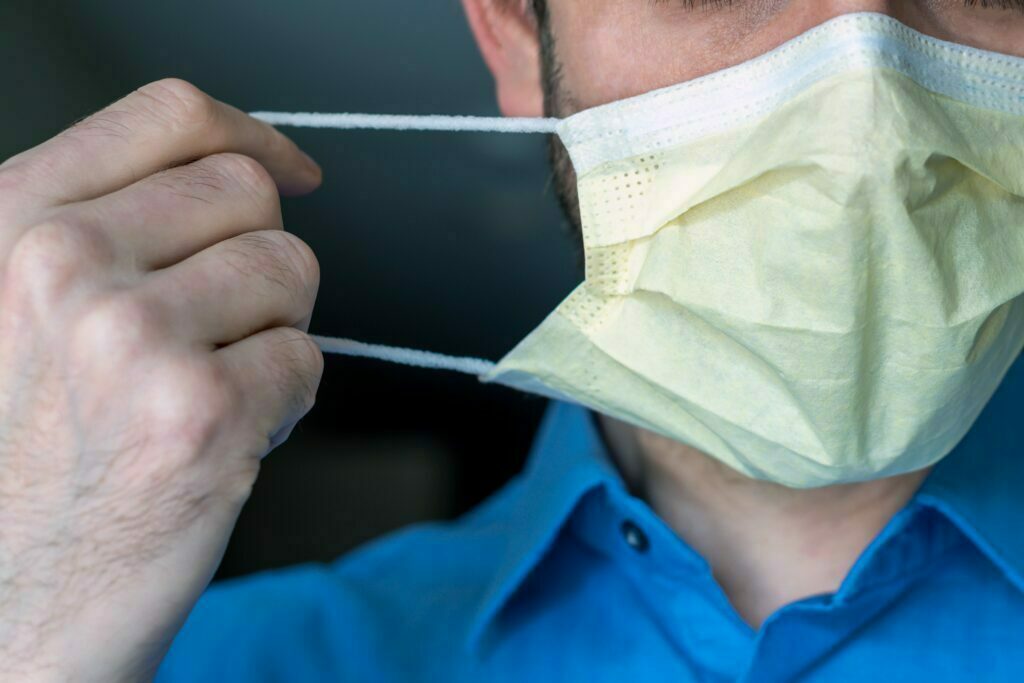Would it help the world prevent the spread of COVID-19 if everyone wore a mask?
COVID-19 is constantly transforming our way of life. It has been more than a year since the virus emerged, and what experts know about this deadly disease changes based upon new and evolving research. As of this writing, 84 million cases in the United States have been affected by this disease, according to World Health Organization. And, while research continues to advance, public mask-wearing mandates are provoking many controversies, even violent conflicts have emerged among non-wearers.
Does it really provide protection? Do I really need one if I’m completely vaccinated? Do masks with vents provide better protection than surgical face masks? In simple terms, it can be confusing. Despite this, the science around the usage of masks is not at all controversial.
Here are eight myths about face masks you shouldn’t believe – and why wearing one is so important.
Myth No. 1: Face masks don’t do anything to prevent the spread of the COVID-19 Delta variant.
Delta is the most predominant virus strain in the United States, being more than twice as contagious as the preceding variants. Unvaccinated people provide the most significant risk of transmission since they are more likely to become infected, develop severe symptoms, and transfer the virus. However, it is possible to avoid or reduce high transmissibility by wearing a mask, especially if worn by an infected individual.
Myth No. 2: Wearing face masks isn’t necessary now that people are getting vaccinated.
People infected with COVID-19 but have no or few symptoms might still spread the virus by talking, coughing, or sneezing, especially if they are in close contact with other people. In addition, fully vaccinated people infected with Delta variant breakthrough infections can still spread the disease to others, even though they can transmit the virus for a shorter time than unvaccinated people. As a result, social distancing and mask-wearing are even more necessary.
Myth No. 3: Only sick people need to wear face masks. I’m not sick, so I don’t need to wear my face mask back.
A research published in the Proceedings of the National Academy of Sciences in August 2021 showed that 42.8 percent of COVID-19 patients are asymptomatic at the time of testing. Although the reason why some infections remain asymptomatic while the majority develop classic symptoms is unknown, control measures like masking, frequent handwashing and social distancing remain necessary. In addition, asymptomatic diseases are difficult to identify without quick contract tracing, and they can even have a high transmissibility rate since asymptomatic patients believe they are not infected with COVID-19.
Myth No. 4: Wearing face masks makes it harder for me to breathe.
Many individuals have heard that wearing a mask might produce hypercapnia or carbon dioxide toxicity, which can cause dizziness, lightheadedness, headaches, and shortness of breath. On the other hand, Masks have continuously been demonstrated to be safe. They are meant to be breathable, which is why medical personnel were already using them heavily before the pandemic. In addition, surgeons and anesthesiologists do not faint or become poisoned by carbon dioxide when wearing masks in the operating room for long periods.
Myth No. 5: Only an N95 mask will help me.
An N95 mask is meant to block 95% of very small particles. Although cloth masks and N95 masks serve different goals, they both aim to reduce COVID-19 transmission. Cloth masks filter tiny particles up to 50%, giving protection to you and the people around you.
Myth No. 6: Reusable cloth masks offer no protection from COVID-19.
Wearing multiple layers of cloth mask or a cloth mask over a disposable mask has been shown to lower the risk of transmitting virus-carrying droplets and improve protection, especially when combined with frequent hand washing and social distancing. In addition, N95 respirators are in short supply and should be reserved for healthcare personnel.
Myth No. 7: Masks with vents or exhalation valves are effective in preventing COVID-19 transmission.
The WHO do not recommend masks with exhalation valves or vents. These masks are designed for industrial workers to prevent dust and particles from being breathed in as the valve closes on inhale. However, as you exhale, the valve opens, and the hole in the material allows your respiratory droplets to escape and spread to others, allowing any virus to get through.
Myth No. 8: I’m wearing a mask, so I don’t need to social distance myself.
Face masks may not filter 100 percent of small virus particles from respiratory droplets, but it’s better to have some protection than none at all. To help reduce COVID-19 transmission, the CDC recommends maintaining at least 6 feet (approximately two arm lengths) away from people. People at a higher risk of being infected should keep their distance from others, whether they are members of your household or not.
Takeaways
Masks are both safe and effective. With combined measures such as frequent hand washing and social distancing, we can prevent the spread of COVID-19 with masks.
Additional Readings
For the latest updates on protecting yourself during the COVID-19 pandemic, visit WHO for more information.









